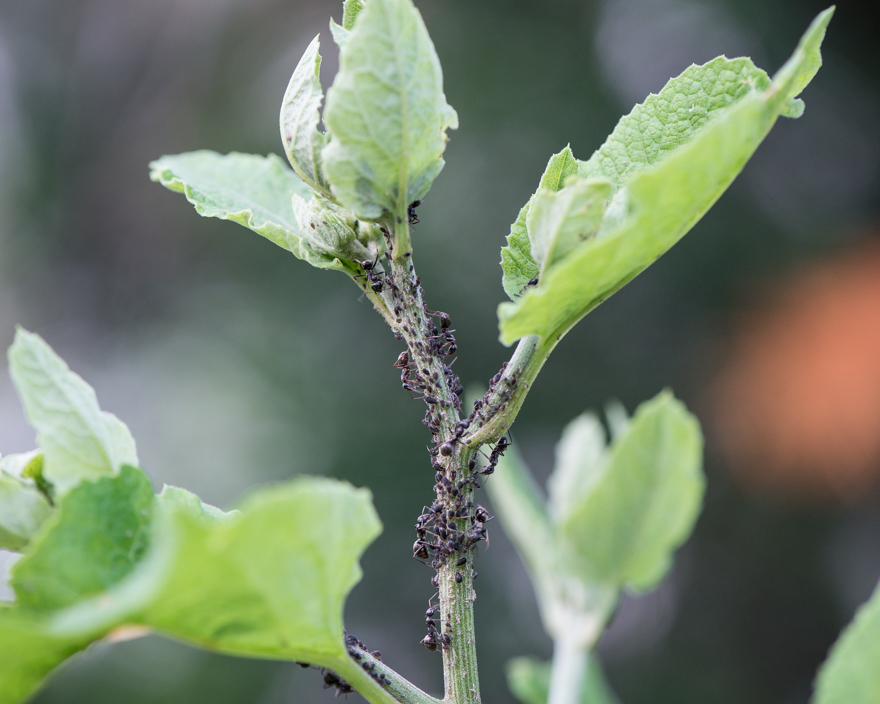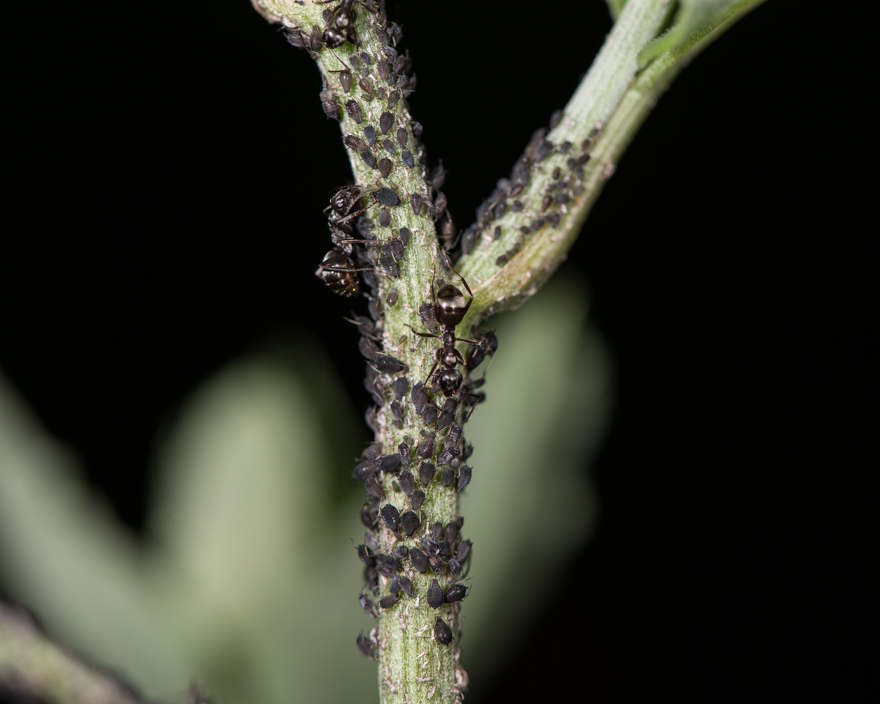I have been neglectful of maintaining my yard this summer, and the jungle is encroaching. My neighbors haven’t staged an intervention yet, but I’m sure it’s coming. And while I feel somewhat guilty that I’m probably making it harder for my favorite neighbor to sell her house, it’s pretty entertaining to watch things grow. And when something really cool turns up like it did yesterday, my rationalization goes into overdrive, and my neglect feels momentarily justified. This is my latest excuse, found yesterday afternoon when I was getting out of the car:
These are aphids parasitizing a burdock plant, while simultaneously being tended by ants. I’d read about this phenomenon, but never seen it in person. Aphids are small insects that suck juices from plants, and for this they are mostly disliked by gardeners and farmers. But ants have a different view on the matter, finding opportunity where others see only a pest. When aphids feed on plant juices, they are primarily interested in extracting proteins, which tend to be in very dilute solution. As a result, they have to process a lot of sap, and they excrete sweet sap concentrate from their back ends; some ant species find this excretion delicious and nutritious, and go to great lengths to maintain access to it. In a symbiotic relationship, the ants protect the aphids from predators (like ladybug), and carry aphids to ideal plant targets to ensure that they eat well. In exchange, the aphids excrete (poop) sweet sticky liquid when ants stroke their abdomens.
Tagged: Ant, aphid, Aphis fabae, Arctium lappa, burdock, Formica, parasitism, symbiosis, urban agriculture

